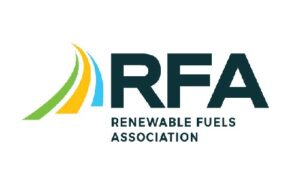These 8 states can sell gasoline with more ethanol year-round starting in 2025, EPA says

The Biden administration will allow eight states, including Illinois and Iowa, to sell gasoline with a higher ethanol content (E15) year-round starting in April 2025. This is expected to benefit corn and biofuel producers by increasing sales but has drawn criticism from environmentalists who warn of increased smog and health risks. Fuel refiners also oppose the move, citing potential supply issues and higher costs. The decision comes after requests from governors of the affected states, though some are frustrated by the one-year delay in implementation.
(The Hill) — The Biden administration will allow gasoline containing a higher percentage of ethanol to be sold year-round in eight states starting in 2025, it announced Thursday.
The Environmental Protection Agency (EPA) issued the final rule after proposing year-round sales in 2023, though the use of the fuel will be delayed a year when compared to the agency’s initial proposal.
Gasoline sold in the U.S. is made up of a mixture of oil and other components like ethanol — though typically ethanol makes up no more than 10 percent of that mixture.
Some gasoline, however, is made up of about 15 percent ethanol, known as E15. In most of the country, this type of gasoline cannot be sold in the summertime because of concerns that it forms smog in hot weather.
Now the states of Illinois, Iowa, Nebraska, Minnesota, Missouri, Ohio, South Dakota and Wisconsin will be allowed to use it at any point in the year starting April 28, 2025.
Support in some of those states could be crucial for President Biden as he seeks reelection this fall.
The move delivers a win to the governors of those states, who in 2022 requested to be able to use E15 year-round. Some of those states also later sued the EPA over the issue.
The move is also a win for corn and biofuel producers, who will be able to sell more of their products throughout the year.
When oil and gas operators don’t clean up their mess, Colorado takes on the costs and challenges
“The EPA decision finally allows retailers in these eight states to sell E15 year-round,” according to a written statement from Geoff Cooper, president and CEO of the Renewable Fuels Association, a biofuel lobbying group.
But Cooper complained about the one-year delay, saying the decision creates “uncertainty and confusion about the availability of lower-cost, lower-carbon E15 this coming summer.”
The move has long been supported by lawmakers representing corn-producing states, particularly in the summer of 2022 when gas prices reached an all-time high in the wake of Russia’s invasion of Ukraine.
Last March, Sens. Amy Klobuchar (D-Minn.) and Deb Fischer (R-Neb.) introduced legislation that would make it available throughout the year, with Klobuchar saying, “it’s critical that we diversify our fuel supply and invest in affordable energy solutions.”
In a statement following the publication of the EPA rule, Fischer argued the legislation is still necessary, saying “the limited geography and needless delay until 2025 still complicates [E15’s] sale.”
Environmental opponents panned the EPA’s decision.
“Allowing gasoline with more ethanol in it makes the fuel mixture evaporate more readily, increasing smog pollution and sickening more kids with asthma,” Dan Becker, director of the Center for Biological Diversity’s Safe Climate Transport Campaign, told The Hill in an email. The group has previously criticized ethanol as contributing to air pollution.
Fuel refiners also oppose the change and have argued that it’s too rapid.
“Even with at least a two-year lead time, the … change will reduce overall supply, increase costs, and make the region more vulnerable to supply disruptions,” Patrick Kelly, senior director of fuels and vehicle policy at American Fuel and Petrochemical Manufacturers, said in a statement.
















